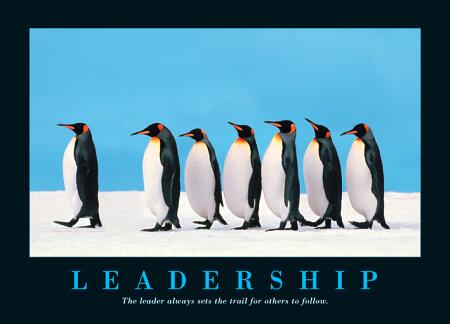If you want to know how to do something, ask the guy who does it everyday. I can try to learn how everything in my computer works, but it often pays to simply get the repair guy to look at it. He can do in minutes what I do in hours. As the commercial says, “Life comes at you fast!” It just isn’t worth the time and investment of the learning curve.
In leadership, I suspect the same rule applies. Leaders, like cream, rise to the top. Since we can identify some leaders who have come (and some have also gone), we might want to ask them about leadership. We may want to listen to a few of their words to refine our own views on leading.
First, we may want to remember that leadership is a privilege. I have the honor to lead a team of competent and imaginative men. It is one of the greatest privileges of my life. I love the reminder that Lewis Grizzard made when he said: “Life is like a dogsled team. If you ain’t the lead dog, the scenery never changes.” Oh what a privilege is mine, to be able to envision, dream and build.
Next, it helps if we recall that leadership is motivation and inspiring influence. We lead because we cannot do all ourselves. The late President Dwight D. Eisenhower said: “Leadership is the art of getting someone else to do something you want done because he wants to do it.” Ike knew a few things about motivating men to do hard things.
Third, it must become clear to any who would lead – real leadership requires courage to move in a different way than everyone else. James Crook said it better: “A man who wants to lead the orchestra must turn his back on the crowd.” We cannot simply watch the crowd and see which way they are going. To lead implies being ahead of the crowd, and charting a course that others have passed by.
Fourth, there is a vast difference between leading and managing. The focus of the leader is not to simply solve today’s issues and problems, but to envision tomorrow’s possibilities. If we lead by influence, we must have a confident gaze forward. We cannot be involved in personally performing every aspect of operating the machinery, or we will fail to see the whole picture. President Theodore Roosevelt said in another way: “The best executive is the one who has sense enough to pick good men to do what he wants done, and self-restraint to keep from meddling with them while they do it.”
Finally, leaders are cultivated, but the raw material was already there. It was simply nurture, it was in their nature. Henry Ford said: “You ask, ‘Who ought to be boss?’, That is like asking, ‘Who ought to be the tenor in the quartet?’ Obviously, the man who can sing tenor!”
